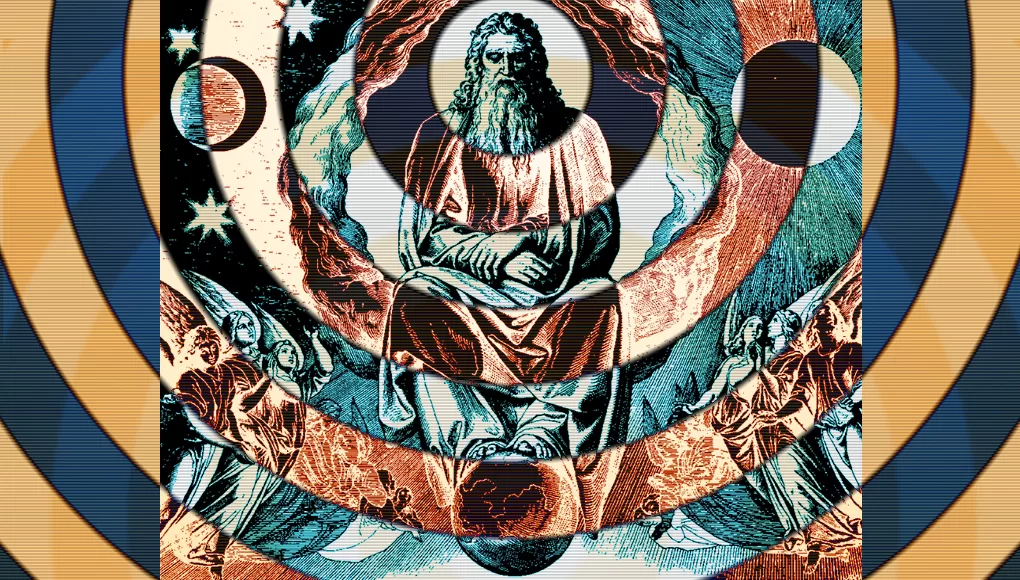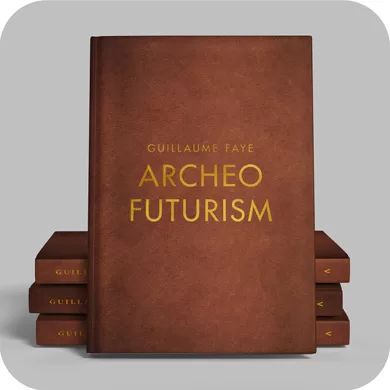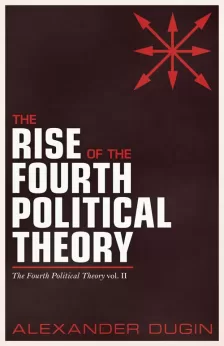‘The fool says in his heart, “There is no God.”’ Such is the judgment of Psalm 13 on atheists.1 There are relatively few on the contemporary Right who lack faith in some transcendent reality. The vast majority (and I speak from my own experience) are Roman Catholics of a traditionalist or conservative bent, which is perhaps to be expected considering its dominance of the Christian, and therefore Western world, with some 1.2 billion members of the Latin Church alone. Yet, when it comes to the search for ‘traditional’ religion, there appears to be nothing but antagonism between those who believe that Christianity is true and those who believe that it has lost its power in the face of liberalization, or who object to its preaching of a moral code which does not always satisfy the intellectual requirements of the political dissident.
At the same time, the number of neo-pagans on the Right compared with Christians remains relatively low, and hopes of a ‘pagan revival’ evoke more wry smiles than they do serious consideration. However, if the Right is to be taken seriously, it needs religious faith, and that religious faith is not to be established through antagonism. For my part, I am a Christian, and I am obliged by my faith to take the teachings of my Church as authoritative. Of course, as a consequence, I would love for swathes of the irreligious and religious non-Christians alike to convert, but practically speaking this will not be achieved by any means other than divine providence. At the same time, there is opportunity for dialogue. Much of the common ground to be found among the world’s religions centres upon the question of monotheism: is the Earth subject to the whims of many gods and potent spirits, or is the whole Universe (and indeed, beyond the Universe) the domain of an all-powerful Creator who set all things in motion, and sustains the natural order for the sake of posterity? I will argue (perhaps to no one’s surprise) for the latter, but crucially it is my belief that certain forms of monotheism, in being so closely related in doctrine and (roughly speaking) moral prescription, will not only hold appeal to those seeking the genuinely transcendent in an otherwise overly materialistic world, but, once established, may pave the way for a serious traditional revival amongst their adherents.
As far as most scholars will be able to tell you, the original Indo-European religion was polytheistic. There is of course a problem with this view – for one thing, scholarship cannot tell us what was the case before the first grounds for its archaeological and speculative knowledge, i.e. it cannot conclusively deny the possibility that Indo-European paganism developed from some other source; and secondly, much of the knowledge that we do have about the earliest Indo-Europeans is indeed speculative. The so-called ‘Proto-Indo-European’ language regularly cited in academia is only a reconstruction of a long-dead tongue and always carries the caveat that it may have been reconstructed incompletely or inaccurately. The other problem is a universal feature in the analysis of any pagan religion – namely that, due to the fact that these religions had been out of practice for such a long time until the advent of early 20th century esoteric and revivalist movements, much of the ritualistic and theological knowledge which they were founded upon has been lost, and what we do know about them has to be reconstructed from archaeological and textual evidence. Indeed, many of the texts which describe the mythologies of Germanic paganism, for instance, such as the Prose Edda, were written by Christians, and the latter text even begins with an extensive description of the world of Norse mythology in the context of its creation by a monotheistic God.2 One of the most interesting discoveries of Indo-European scholarship is that of the supposed ‘chief god’ of the Indo-Europeans, whose name is usually reconstructed as Dyeüs Ph’ter, thought to be translated literally as ‘shining father’. This Dyeüs Ph’ter would evolve into the Italic languages as Djespater, and eventually the Latin Iuppiter (Jupiter) and into early Greek as Zeu piter. Indeed, by the classical period, the Greeks had a clear idea of their chief god as Ζεύς πατήρ – Father Zeus. For Christians, the plot thickens all the further upon realising that Dyeüs is also cognate with the Latin deus and Ph’ter with pater. When placed together, Deus Pater gives the Latin name for the first person of the Christian Godhead: God the Father.
The early Christian fathers were very interested in uncovering the continuities between their own faith and the earlier monotheistic tendencies of religions in the known world. Lactantius, a Christian philosopher and formative influence on the Roman Emperor Constantine, had argued for the existence of a prisca theologia, ‘ancient theology’, which could be found in all religion, but which had been subject to corruption before the corrective revelation of Christ. Before being baptized into the Church, St. Augustine had been a Manichean (a Gnostic sect of Zoroastrianism) and indeed, it may have been the similarity between the teachings of Zoroaster, who described a creative and benevolent ‘God of light’, and Christ which made conversion to Christianity all the more comfortable for him. Later in the early to middle part of the 19th century, German theologians and historians of the Romantic school theorized the existence of the Urreligion, ‘proto-religion’, following in particular the writings of Friedrich Creuzer.3 Whilst the reading of monotheism into the works of Homer and Hesiod after the Creuzerian mode may be fanciful, it may not be so ridiculous to claim (indeed, as the author of the Prose Edda did) that pagan gods were euhemerized human beings whose characteristics were mythologized and analogized against those of a Supreme Being.
Monotheism is hardly a Christian innovation in the West. Socrates’ expression of derision for the polytheism of classical Athens appears to have been among the reasons for his execution – assuming that the account of his speech to the jury in Plato’s Apology is true – and Plato himself reached the conclusion that the Universe and all within it had been created by a δημιουργός, a ‘craftsman’, to whom belonged the creation of not only primordial matter but the ‘lesser’ gods and spirits which were described in mainstream Greek mythology.4 Many Greeks, perhaps influenced by the various philosophers who questioned the polytheism of public worship, adopted monotheistic practices from Judaism. Some of these were indistinguishable from Hellenised Jews, and became known as the ‘God-fearers’. Indeed, St. Paul’s speech to the Jews in Pisidian Antioch (a Greek city in Asia Minor) begins ‘Hear me, Israelites and God-fearers!’ (Acts 13:16) and the crowd to which the Apostles preached at Pentecost is described at length as being composed of people from many nations, ranging from Rome in the West to Arabia and Parthia in the East (Acts 2:9–11). Goethe, the prolific German Romantic poet and philosopher, also wrote sentimentally of the Hypsistarians, Greek colonists on the Black Sea coast of Pontus and the Crimea, who had adopted an indigenous hybrid of Greek pagan culture and Judaic monotheism, and who frequently offered sacrifices unto the Ὕψιστος ‘The Most High [God]’.5 Indeed, even the oracle of Apollo at the Turkish city of Klaros, when asked whether there was such a thing as a God called ‘Most High’, answered:
He is the Lord of all things, self-originated, self-produced, ineffably ruling all things, encompassing the heavens, spreading across the Earth.6
If we were to conclude that there is, therefore, a single Supreme Being who is the metaphysical sum of everything that exists, whose discovery is the result of serious reflection on cosmology, known even unto European pagans – a Being from whom all religious experience is ultimately derived, and all religious worship directed in its most primitive form – then we must ask how appropriate it is for us to worship Him in such diverse ways. There are many monotheistic religions, some of which claim to be more ‘orthodox’ than others, but all of which claim to be correct.
I tend to distinguish between ‘radical’ and ‘mystical’ forms of monotheism when engaging in the study of comparative religion. In a basic sense, this distinction refers to those monotheistic faiths which emphasize a single God in perfect unity with Himself, who exists outside of the created Universe, but who nevertheless reigns over it with absolute authority, over and against faiths which may divide a single divinity into parts or manifestations which, they claim, can be experienced separately or through wholly diverse praxes. Orthodox forms of Judaism, Islam, Zoroastrianism and Unitarian Christianity (but also other smaller faiths such as Sikhism and Baha’ism, both of which owe their development at least somewhat to Islam) fall into the former camp, whilst esoteric forms of Christianity such as Gnosticism and Hermeticism, monotheistic interpretations of Hinduism, and some forms of Kabbalistic Judaism fall into the latter category. As one might immediately notice, for the most part the former entail absolute submission or obedience to God, whilst the latter place more emphasis on personal experiences of Him induced by a complex and often taboo ritualistic praxis.
Radical monotheism has its attractions. Julius Evola once described Islam as ‘a tradition at a higher level than both Judaism and the religion that conquered the West;’7 indeed, in Islam’s case the dependency upon the life of Muhammad, a fairly historically unique ‘warlord-prophet’, fit more snugly with Evola’s heroic vision of a religion of mankind, and his intellectual father, the seminal French traditionalist René Guénon, had embraced Islam himself for similar reasons. Those of a more analytic disposition also find the idea of a clear struggle between a God of unity (without the confusion of consubstantial parts &c.) and an evil force of deception generally more agreeable to their sensibilities. A purely utilitarian and distinctly un-theological criticism of this position is that, in viewing God so singularly, He becomes most palpably uninteresting. Interaction between God and the World is conducted relatively innocuously via His nominated humans, who periodically remind mankind that there is indeed a God and that He still reigns over the whole of creation. More broadly, the legalistic view of the universe cultivated by Islamic shari’a or the Hebrew Torah-Talmud leads to a fixedness of praxis with only a very limited space to permit the inevitable manifestation of human inadequacy. ‘Do x, do not do y, and if you do y receive the punishment z’ is all well and good, but a jurisprudential text does little for spiritual growth. Legalism also seems to lead to a sense of superiority and arrogance which clashes with most natural human valuations of humility. In the Muslim world for example, whilst limited tolerance of other religious groups is seen in some states, it is by no means universal, even with regards to the internal branches of Islam.
On the other hand, the spiritual experience offered by forms of esotericism, whilst often appealing to the modern spiritually starved soul, has its own drawbacks. Not to mention the fact that esotericism often acts as an open door to a certain cultishness which deprives the acolyte as much of his money as of his time, and which presents such a confusing and often contradictory view of the divine as to be incompatible with reason, and compatible with blind faith alone – esotericism has more dangerous inclinations as well. Gnosticism and its contemporary influences in various arms of Freemasonry, for example, in a perverse corruption of Christian theology, view God or the ‘Father’ of the Universe as a force to be opposed, either through the intermediary of a semi-divine being (such as the Gnostic understanding of the Logos or Christ) or by deviant acts which separate the worshipper from all respect for the material, created world.8 More deviant still is esotericism’s penchant for ‘magical’ rites. In the case of Hermeticism, for example, derived from the writings of the pagan prophet Hermes Trismegistus, what may have begun as a genuinely indigenous discovery of monotheism (some believe that Hermes’ description of God may even have prefigured the Trinity, hence the descriptor ‘Trismegistus’, ‘Thrice-Great’), became obsessed with the magical and supernatural offshoots of alchemy. Magic is an act which, whether perceived as real or not, seeks to harness control of physical objects in a manner contrary to nature, or put bluntly, to play at God by harnessing some supernatural power. It seeks power through calling upon forces which may not be directly related to a Creator figure, and as such always runs the risk of directing itself away from goodness by tacit repudiation of creation. It may even involve unnatural or deliberately perverse acts in order to achieve the desired outcome. That, besides the fact that magic has little to do with worship, and much to do with ritual for ritual’s sake (in the case of reconstructionists) and a desire for personal power (in the case of genuine believers in ‘magic’).
So what is the answer to the excesses of radical and mystical monotheism? There is, I submit, a middle way between the two, and it is found in the orthodox (Trinitarian and Chalcedonian) expressions of Christianity. Far from deserving scorn on account of its roots, Christianity contains the ‘charisma of truth’ to quote The Young Pope’s Pius XIII. It adheres to monotheism, true to its roots in both Judaism and the Greek God-fearers, but also has a rich mystical tradition both within its own teachings, as well as on the fringes of orthodoxy. It is also appropriate that much of ancient Greek and Latin philosophy – the classical roots of Western civilization – was co-opted into Christianity as the natural continuation of that tradition. In teaching doctrines such as the Trinity, Christianity opens to door to mystical exploration on the one hand, whilst also allowing the layman to pursue the simple faith in his daily life.
The Trinity is significant, not only because it marks a clear difference between the religious predecessors to Christianity, but in its status as a sublime paradox. The doctrine of three persons in one God appears contradictory at first, but it stands to reason as a logical possibility. Just as if one had a three-sided three-dimensional shape, or even a simpler triangle, so is the Trinity. If one looks at a three-sided shape, it forms a single shape as a whole, and no matter from which of the three faces one looks at the whole, it remains what it is. Yet, if one were to take any one side of the shape away, it would cease to be whole. Equally, it is of no matter whether one offers prayers to the Father, Son, Holy Spirit, or all, since each one is fully God, and yet if any one of these was to be removed from the Godhead, the Christian God would simply cease to be.
The Cross, apart from its salvific power as elucidated in theology, stands in the place of the Germanic World-Tree, the true vine from which all life is nourished, linking together Christ’s place as Word of God with the λόγος σπερματικός of Greek philosophy – the first, rational, and creative principle of the Universe. In Apostolic Christian traditions, where the Virgin Mary is widely venerated as a protector of men set before God as their intercessor, this ‘Mother of God’ figure fits snugly into the perennial veneration of an ‘eternal feminine’, manifested in various forms throughout history, but artistically most striking as the Ewigweibliche of Romanticism – coincidentally also the force which bears Goethe’s most infamous protagonist into heaven at the conclusion of his epic depiction of the European imaginative spirit: Faust.9 The idea that Christianity and its ideas are somehow an imposition upon a distinct Western European tradition, or that local religious traditions were completely phased out for the sake of conformity is a criticism which one finds widely shopped around, but poorly justified.
Now, one cannot say that the historic Christian Church is entirely innocent of suppressing local traditions, and it has at times been marked by a distinct failure to accommodate ideas which may well have enriched and strengthened it rather than weakened it. However, almost always, the Church’s wars against local traditions did not lead to the implementation of an alien philosophy, but rather the development of entirely new ones. In the early days of Christianity, the first fathers of the Church, such as Origen and Tertullian, engaged with pagans on a regular basis and developed new Christian philosophies, partly indebted to pagan masters, but also imbued with a new sense of life derived from the Christian religion. Origen in particular went to great lengths to refute the pagan claim that Christianity was characteristically anti-philosophical.10 It is for this reason that the West may do well to turn its eye to Eastern forms of Christianity, which are not only inherently more mystical, but also retain many of the liturgies and doctrines of the earliest fathers who fit Christian doctrines into the lives and traditions of pre-existing peoples. It is certainly true that the Western world has neglected investigation into the East for a long time, and perhaps unfairly, since it was the fruits of the fathers that resulted in a Christianity which suits the European imaginative mind far better than any other spiritual system that we know of, and it is this spirit, at once imaginative and moral, which has served Europe well, and contains the grains of truth that Europe has been able to cultivate and eventually offer the world at large as its legacy.
On the whole, some form of monotheism appears to be a more rational worldview than any form of polytheism. Europeans who embrace more radical faiths such as Islam often find expressions of creativity and mysticism, as well as analogies to their Christian heritage, in movements such as Sufism, which at times offers theological insights strikingly similar to Christian orthodoxy. It is difficult to apply something as objectively abstract as a dialectic to religion, or rather, one should be cautious when doing so. Nevertheless, it seems to me that Christianity is the natural synthesis of mystical and purely theoretical approaches to the One God, who, it seems eminently reasonable to suppose, is the Creator of the Universe.
If one feels the need, in the course of one’s life, to embrace paganism, then I suppose this is the prerogative of the individual. Such an individual, however, cannot begin to pretend that this choice of his is in some way inherently superior to any form of monotheism, or that it has its roots in a deeper European tradition. When it comes down to the spiritual soul, seeking something beyond the merely material – or even better, seeking to unite the spiritual and the material – is preferable. Given today’s world where Choice itself has replaced God in many senses, it is unlikely that religious diversity will give way to homogeneity; yet, if there is indeed only one Master of Creation, then it behoves the spiritual soul to find the correct expression of Him, and to worship Him – for no other Master will listen.
References
1 Following the Septuagint (LXX) numbering. Most Protestant Bibles use the Masoretic or Hebrew numbering of the Psalms, and will list this as ‘Psalm 14’.
2 Specifically, the Prologue to the Prose Edda makes the claim that the Norse gods were in fact Thracian heroes of old who were euhemerized and deified by later generations of proto-Germanic peoples, making curious cross-cultural links to the heroes of the Trojan War, and other legendary figures.
3 Creuzer’s purely speculative and largely circumlocutory (though by no means uninspired) musings on the possibility of a monotheistic proto-religion can be found in his masterwork, Symbolik und Mythologie der alten Völker, besonders der Greichen.
4 In the Timaeus, 28a ff.
5 Vid. J. W. von Goethe in a letter to Sulpiz Boisserée, 22 March 1831.
6 “Hypsistarians” in Catholic Encyclopaedia (1913).
7 J. Evola, Revolt Against the Modern World, p. 245
8 Consider, for instance, the (admittedly extreme) case of the Borborites; a Gnostic sect whose sacraments included ritualised abortion as well as other degenerate and libertine acts. Indeed, the very word ‘Borborite’ means ‘filthy’. As narrated by Theodoret of Cyrus.
9 The last lines of Goethe’s epic: ‘All things are transitory, / But as symbols are sent: / Earth’s insufficiency / Here grows to event: / The indescribable, / Here it is done. / The Eternal Feminine / Bears us upward and on!’ (Bayard Taylor trans.).
10 See in particular Origen’s Contra Celsum; for a detailed exposition on Christian responses to pagan critics, vid. G. Karamanolis, The Philosophy of Early Christianity, p. 120 ff.










A very well written article, measured and considerate. I think one thing which could perhaps be addressed is why many on the right turn away from Christianity in the first place, which is its inertia as a counter-cultural force, a problem largely down to leadership. It’s difficult to blame those who believe Christianity is simple too weak to be worth belief when they see on the one hand that Christianity is neither accomodated nor liked by the current European elite, and yet at the same time offers nothing but loyalty and obedience to the present system.
Is this simply a product of the particular time we live in, where the leadership of almost every Church grew up in a generation where going into the priesthood was still just about classed as ‘fashonable’? Is the problem that Christians today are too deluded about the extent to which they even fit into the culture around them? When will this wear off? I’d say Christianity has a strong case to make for itself to those willing to judge it based on its best writers (not just theologians, but the great political thinkers of the right tradition who were up until recently almost all Christians), but today’s Christians must find a way to chart a course out of the present religious disaster before they will convince others to follow them.
One small quibble with the article: you state that Rene Guenon had converted to Islam for similar reasons that Evola admired it. I’m not sure this is correct. Evola and Guenon, while of the same school, were very different thinkers. Guenon really had no innate interest in war as Evola did, and so I don’t think it was the warlike or ‘heroic’ nature of Islam which appealed to him (this could be made evident by the fact that he became a Sufi, who are notoriously non-violent). Guenon loved mysticism and contemplation, and was partial to the Arabic art style. Further, when he decided to become a Muslim, he effectively decided to become an Arab. He moved to Egypt and obeyed the Sharia there for the rest of his days. He gave up his European identity. This was a last resort for him, as he felt that the Western Church had been so undermined that it would not be able to save Europe from its eventual fate.
I wrote concerning the animus of the alt-right towards Christianity here:
https://www.eurocanadian.ca/2018/04/refuting-anti-christian-animus-on-the-alt-right.html
I think the author is having a difficult time removing the Latin Rite Catholic lens for matters of metaphysical and historical analysis. I am not unsympathetic to his plight. The fact that much of the Indo-European religious history remains shrouded in archeology, linguistic theory or speculation does not necessarily make Christianity the stronger simply because there are liturgies, rituals and traditions extant today. In some future time the same fate may befall Christianity or other Semitic religions and what would we say then that either the erosive power of history or the supplanting of another religion in place of Christianity nullifies it completely? Is the present always superior to the past? Are we neoterics in religious matters? History is episodic in a sense and many do not wish to forget the previous episodes while viewing the ending credits of the present episode while also anticipating the next. Some cannot let go or see a future beyond the present moribund episode undoubtedly because all they know is what they know and the Gates of Hell shall not prevail upon the vehicle of their consolation.
It is odd that the author would deem the constructs of the Proto-Indo-European language as speculative but then refer to the historical etymology of Deus Pater as a culminative word set for God–all causal and historical implications included. I also find the absence of the (Neo) Pythagoreans, Plotinus, Iamblichus, Porphyry, Proclus and the Chaldean Oracles odd if one is to discuss such topics as the Trinity, Hermeticism and “magic” because there is a division for the Neo-Platonists between Theurgy and union with the One. Although these thinkers and ideas existed within the ambit of post Babylonian Judaism through Conciliar Christianity, this does not necessarily mean that Abrahamic monotheism informed the aforementioned to the point that it became a simulacrum of latter. After all, Philo of Alexandria took upon himself the project of explicating parts of the Pentateuch in light of Greek philosophical concepts and terminology. Was it to make Judaism relevant in both a Hellenized and Roman world or was it a proselytistic endeavor to secure a future for his faith because he could not see any other raison d’etre than what his tribe or cultural interests had established religiously and historically ? Couldn’t the same be said of the Church Fathers? Both were Abrahamic in their religious narratives (Messianism) grappling with those people (pagan) and theological claims outside their (city of God) faith.
If a Nag Hammadi event should occur again but this time a trove of previously unknown Middle Platonic texts should be discovered that contained texts (commentaries on Timaeus for example) and histories not seen since the burning of the library of Alexandria or the sacking of Athens and Piraeus by Sulla: where would the Abrahamic religious project be then? Surely more material and epigraphic discoveries will occur before a Messiah returns.
Men of the Right have never once knelt before the Nazarene. (You yourself may have been too ashamed to mention Jesus in your article.) A simple book like Hans F. K. Günther’s The Religious Attitudes of the Indo-Europeans or a more difficult work like Nietzsche’s On the Genealogy of Morals will explain why this is so. Suffice to say that no man would make himself a sheep to a shepherd. Certainly not one who comes of a leonine tradition as opposed to one who was a slave to an Egyptian God and then a servant to a Canaanite one (same word: Afro-Semitic “abd”).
Far be it from me to close off critical discussion on Christianity; to the contrary, I would even add the title of the Antichrist to your list as a book which should be deeply read by thinking pagans and Christians alike.
Nonetheless, to claim no man of the Right has ever knelt before the Nazarene goes something too far. Account would have to be given of (to pluck out a mere handful of particularly clear examples from a great historical troop) Dante, Joseph de Maistre, Charles Maurras, Juan Donoso Cortés, Dostoevsky, António de Oliveira Salazar, and Pope Leo IX; one would either have to demonstrate that these men, and the many like them, were not ‘of the Right’, or else that they did not really believe in the divinity of Christ. In either case, I do not envy you the task you have set for yourself.
Let us not forget that Italian Fascism itself originally made clarion terms with the Church in the form of the Lateran Treaty, an agreement which established Catholicism as the de facto if not de jure religion of state; to this day, Christian crosses hang in Italian schools thanks to the Fascists, and the far-right Italian political party Forza Nuova is in many of its parts if not in its entirely openly Catholic.
Christianity can and should be critiqued by the men of the Right; it cannot however be dismissed out of hand.
Christ is to be found in the realm of pure thinking. The true “I”. It is not the abyss. The Pagan mystery traditions are no longer. They were very exclusive. Now it is the Resurrection in thinking that brings forth the I AM. Every religion is now Christ oriented in that regards